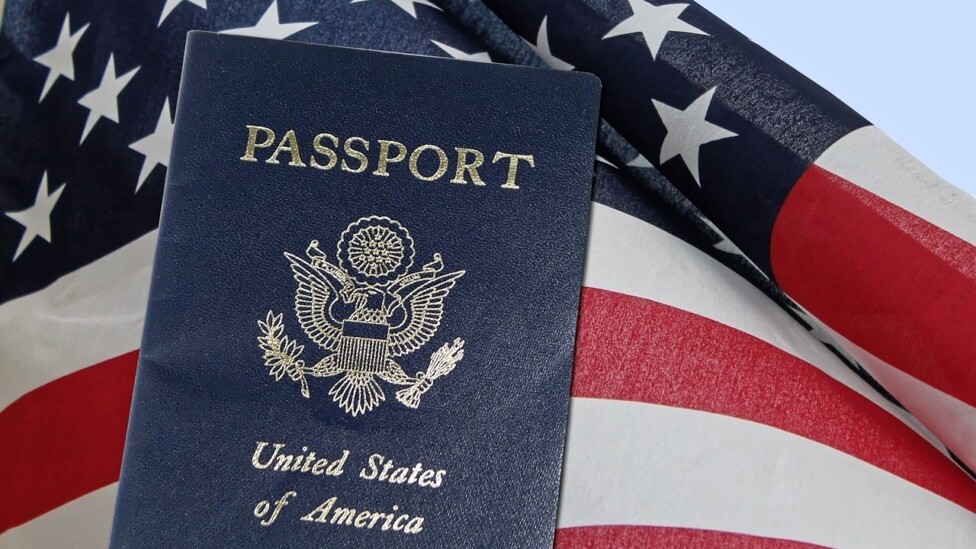
As a married, self-employed serial entrepreneur from the Dominican Republic, the well-trodden paths of gaining a green card to work in the US, like marrying an American, investing more than $500K to $1M, or finding a corporate sponsor and waiting years to be accepted for the H-1B were not for me.
However, what I was lacking in funds, patience, a sponsor and marriage availability, I made up in industry expertise.
I applied for the EB-1 extraordinary ability visa for my expertise in SEO. Designated ‘for people who are recognized as being at the very top of their field’ the O-1/EB-1 visa more commonly known as the ‘genius visa’ was originally designed to encourage the brightest minds of academia and science to come to the US. However, it has since been used for everyone from Playboy bunnies, entrepreneurs and chat show hosts.
So how can entrepreneurs take advantage of this lesser known visa opportunity, assuming like me, they they don’t have the specific qualities needed to join Hugh Heffner’s posse:
1) Prove your worth
In the startup world, the term ‘expert’ and ‘thought leader’ are thrown around quite freely nowadays. Anyone with a computer, the internet and an idea can can register a company, so just being the founder of a startup is not enough to qualify for the EB-1 alone.
However, this visa is particularly attractive to founders and solo entrepreneurs, as it allows them set up their own company rather than requiring that they be sponsored by an existing American enterprise.
The US immigration service clearly outlines a 10 point criteria to validate the fact that you possess an extraordinary skill. For scientists, innovators, or entrepreneurs, the most relevant criteria include:
- Being awarded prizes or awards for excellence on a national or international level
- Being a member of associations that require outstanding achievements
- Having been published in trade or major media publications
- Having made original scientific, scholarly or business contributions of major significance
- Having authored scholarly articles in professional journals or other major media
- Having played a critical role for an organization with a distinguished reputation.
However, ‘playboy bunny’ or ‘chat show host’ and ‘genius’ are not words often associated with each other, and there are other less vocational and academic perceptions of excellence too, including:
- Having participated on a panel or individually as a judge of the work of others in the same or in an allied field of specialization
- Receiving a high salary or other remuneration for your services in comparison to others in your field
- Your work having been displayed at artistic exhibitions or showcases
- Having enjoyed commercial successes in the performing arts
To establish eligibility, candidates must demonstrate sustained acclaim by showing that they’ve received a major internationally recognized award, similar to a Nobel Prize; or proving that they meet at least three of the ten requirements listed above.
Unsurprisingly, assessors will not accept your stardom on your word alone, and validation is done primarily via third parties. As such it’s important to build a network of top regarded peers in your field who can vouch for your experience and expertise.
It’s not mentioned in the criteria list, but you will need to submit endorsement letters from your peers, who need to be recognized in your field, and explain clearly what original contributions you have made to deserve the visa.
Use your network to your full advantage, and don’t be shy about asking for recommendations from public figures who have crossed your path — however briefly.
Friends in high places are definitely a bonus. A recent Reuters article offers the example of British born Josh Buckey, who was awarded an O-1 visa after founding and selling a number of internet companies, and receiving written nominations from Netscape co-founder and venture capitalist Marc Andreessen, and Apple Inc co-founder Steve Wozniak.
2) Find your niche
So assuming that you haven’t won a nobel peace prize, and you aren’t best buddies with Jeff Bezos and Elon Musk, how can you make yourself stand out from the crowd?
Make sure it’s a small crowd.
The path to recognition is shorter if you are a specialist in Amazon tree frog gynecology, than general veterinary science, quite simply because there are less experts who work in your field.
The same rules apply for the world of business and entrepreneurship. Rather than specializing in more general spheres like business management, sales, or marketing, try to highlight the more specific area where your skillset defines you from the rest of the competition.
In my case, I chose to focus on my expertise in SEO, rather than the more general sphere of digital marketing. While there are thousands of SEO experts around the world, I had the social proof and online presence to argue the case that I was in the top one percent.
Social proof comes in many forms, but quite simply means that people know who you are, and you have established yourself as someone with valid opinions to share on a certain topic. To qualify as a ‘leader in your field’, a quick Google search should reveal plenty of hits for your name, from Youtube videos of presentations at industry events, articles and guest contributions on leading publications, and references in contributions from other experts.
Assessors want to see that you have built a reputation over time, and developed as a professional through years of hard work and giving back to your chosen field of expertise. So if you haven’t been getting involved in your industry, you had better start now, and pull out all of the stops.
3) Make yourself a thought leader
EB-1 assessors put a lot of value on candidates having published work in industry specific, academic and leading mainstream publications.
Some of the world’s most respected publications, such as Entrepreneur Magazine, The Next Web, Forbes, and the Huffington Post all accept contributions from guest writers, but if you want to start off small, why not build up your own blog first.
I started a blog branded with my own name back in 2007, and started sharing my best SEO tips. Tips people were willing to pay for.
As my blog started to grow in popularity, I started contributing my own opinions and insights to posts by other SEO experts published on the Moz blog, one of the most popular SEO blogs at the time. As I started putting my name and opinions out there, top SEO experts started following my writing and I got invited to speak at SEO conferences. I already had the expertise to share, but making it public opened a valuable network of peers, which later were more than happy to write endorsement letters for my visa.
Aside from contributing articles and blogs, you should make yourself available whenever possible to share your wisdom and expertise. This could be at conferences and workshops, book reviews or editorial panels, or by working with local accelerator programs, social enterprises or NGOs. Being generous with your time, and sharing your expertise without holding back is key. This will be invaluable in the future when you need endorsement letters.
During the evidence collection for the EB-1 visa, more than 80% of the evidence I provided came directly or indirectly from my blogging activity and guest contributions, or due to recommendations from experts thanks to my involvement in the industry. The other twenty percent were thanks to an US patent I was approved for, and my potential high salary at US startups that were open to sponsoring my O-1 visa.
My journey to ‘genius’ status was long and time consuming, and involved more giving than taking to build my reputation and develop my position in a group of esteemed peers. But as I drive to work in the bustling tech hub of New York, I remind myself that all that hard work did pay off.
Get the TNW newsletter
Get the most important tech news in your inbox each week.





